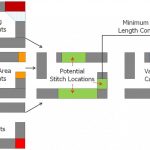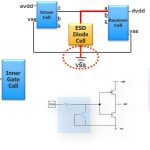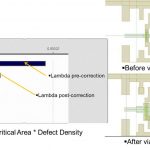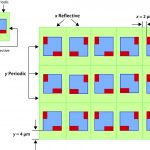Robust Reliability Verification: Beyond Traditional Tools
by Matthew Hogan, Mentor Graphics
At all process nodes, countless hours are diligently expended to ensure that our integrated circuit (IC) designs will function in the way we intended, can be manufactured with satisfactory yields, and are delivered in a timely fashion… Read More
Author: SStalnaker
Robust Reliability Verification: Beyond Traditional Tools and Techniques
Bats about DAC!
DAC 2013 is closing in fast now…and if you haven’t made your plans for what you want to see and do, you’d better get going! Of course, I’m happy to help you out with a few suggestions…starting with that most important objective—conference swag. Stop by the Mentor Graphics booth (#2046, for those of you who actually look at your floor… Read More
Chasing DP Rabbits
“Now, here, you see, it takes all the running you can do, to keep in the same place. If you want to get somewhere else, you must run at least twice as fast as that!”
—Lewis Carroll, Through the Looking Glass
The use of stitching can greatly reduce the number of double patterning (DP) decomposition violations that a designer has to resolve.… Read More
First Time, Every Time
While this iconic advertising phrase was first used to describe the ink reliability of a ballpoint pen, it perfectly summarizes the average consumer’s attitude toward automobile reliability as well. We don’t really care how it’s done, as long as everything in our car works first time, every time. Even when that includes heated… Read More
Winner, Winner, Chicken Dinner!
I have no idea if chicken was actually on the menu, but on December 12, Calibre RealTime picked up its thirdindustry award, this time the 2012 Elektra Award for Design Tools and Development Software from the European Electronics Industry. Calibre RealTime came out on top in a group full of prestigious finalists, including ByteSnap,… Read More
Double Patterning Exposed!
Wanna become the double patterning guru at your company? David Abercrombie, DFM Program Manager for Calibre, has written a series of articles detailing the multifaceted impacts of double patterning on advanced node design and verification. For designers struggling to understand the complexity and nuances of double patterning,… Read More
Automating Complex Circuit Checking Tasks
By Hend Wagieh, Mentor Graphics
At advanced IC technology nodes, circuit designers are now encountering problems such as reduced voltage supply headroom, increased wiring parasitic resistance (Rp) and capacitance (Cp), more restrictive electromigration (EM) rules, latch-up, and electrostatic discharge (ESD) damage,… Read More
DFM Provides Proven Value
Although design for manufacturing (DFM) tools and techniques have been around for several nodes, a lot of designers remain skeptical about their actual value, especially since many products still make it successfully to market without the use of DFM.… Read More
Advanced Memory Cell Characterization with Calibre xACT 3D
Advanced process technologies for manufacturing computer chips enable more functionality, higher performance, and low power through smaller sizes. Memory bits on a chip are predicted to double every two years to keep up with the demand for increased performance.
To meet these new requirements for performance and power, memory… Read More
Reducing the Need for Guardbanding Flash ADC Designs
Flash analog-to-digital converters (ADCs) are commonly used in high-frequency applications such as satellite communications, sampling oscilloscopes, and radar detection. Flash ADC is preferred over other ADC architectures because it is extremely fast and quite simple. However, flash ADC typically requires twice as many… Read More

















TSMC vs Intel Foundry vs Samsung Foundry 2026